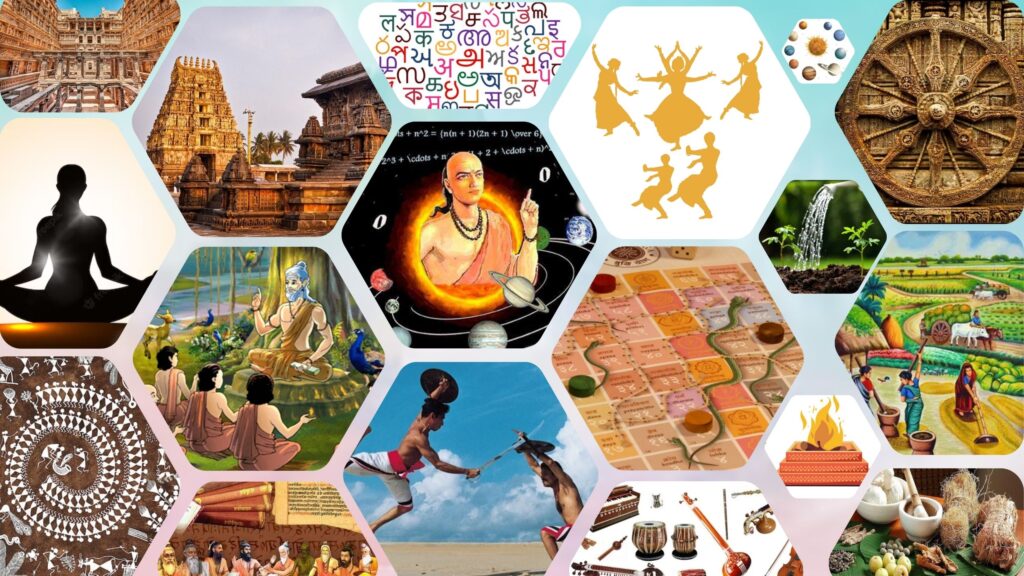Hare Krishna Readers,
Recently, the Indian Knowledge System (IKS) has sparked significant debate, particularly concerning its place within modern scientific discourse. Some top voices in student career services have recently implied that studying, exploring, and researching IKS topics may be tantamount to engaging in pseudoscience. Such assertions, often made without rigorous examination, have raised important questions about how we, as a society, view and validate knowledge.
At the Institute for Science and Spirituality (ISS), we believe it is essential to address these concerns head-on. The very notion that IKS could be dismissed as pseudoscience reflects a broader issue—namely, the widespread misunderstanding and underappreciation of IKS within academic and professional circles. This misunderstanding is not without cause.
There are several reasons why IKS is often sidelined:
- Educational Exposure: From a young age, Indian students are predominantly exposed to non-Indian concepts through the mainstream schooling system. This limited exposure creates a narrow worldview that often excludes traditional knowledge systems.
- Lack of Formal IKS Education: Professional and formal exposure to IKS is almost nonexistent in contemporary education, leading to a gap in understanding and appreciation.
- Colonial Impact: The colonial legacy of almost a thousand years has left a lasting impact on how Indians perceive their own cultural and intellectual heritage. They often view anything Indian with skepticism.
- Perception of IKS as Religious Studies: A common perception is that IKS is the same as religious studies. This perception is not based on evidence but rather stems from the mistranslation of ‘Dharma’ to ‘religion.’
Given these factors, it is no surprise that IKS is often misunderstood and even denounced as pseudoscience. However, denouncing any form of knowledge without subjecting it to rigorous scientific scrutiny is, in itself, a pseudoscientific approach. True scientific inquiry requires openness to exploring all forms of knowledge, including those that have been historically marginalized or misunderstood.

Through a series of articles in this newsletter, ISS aims to create awareness and foster a deeper understanding of IKS. We seek to challenge the prevailing myths and misconceptions, particularly those held by students, think tanks, and industry leaders in India. Each month, we will delve into various aspects of this discussion:
- History of Modern Science: We will explore the history of modern science and its impact on the perception of traditional knowledge systems.
- Philosophy of Science: Understanding the philosophical underpinnings of science and how it intersects with and differs from the philosophies embedded within IKS.
- Epistemology and Ontology of Knowledge: Delving into the study of knowledge itself, its nature, and its origins, comparing the approaches of modern science and IKS.
- Role of Faith and Reason in Science and IKS: Examining how faith and reason function in both scientific inquiry and IKS, and their respective roles in the pursuit of truth.
- Methods of Acquiring and Validating Knowledge: We will discuss the various methods used to acquire and validate knowledge in both science and IKS, highlighting areas of convergence and divergence.
- Expansion of Current Scientific Tools: Exploring how modern scientific tools can be expanded and adapted to integrate the rich insights offered by IKS.
- How Indian Religious Texts Can Help Science: There is a prevalent notion in India that IKS is synonymous with religious studies and lacks a scientific basis. This misconception arises largely due to the mistranslation of ‘Dharma’ as ‘religion.’ We will explore the difference between ‘religion’ as understood in English and ‘Dharma’ as per Indian languages and how these concepts are not the same.
- Impact of IKS on global economy since 1st century AD: We will go through available data to see what and how the knowledge system of India impacted the global economy since 1st century.
Our goal is to encourage a more inclusive and expansive view of knowledge—one that recognizes the value of IKS and its potential to contribute to global scientific discourse. Rather than dismissing IKS, we advocate for a more scientific approach: to study and critique it rigorously, thereby enriching both modern science and our understanding of the world.
We invite you to join us on this journey of exploration and discovery. Together, let us work towards a future where all forms of knowledge are given their due respect and consideration.



